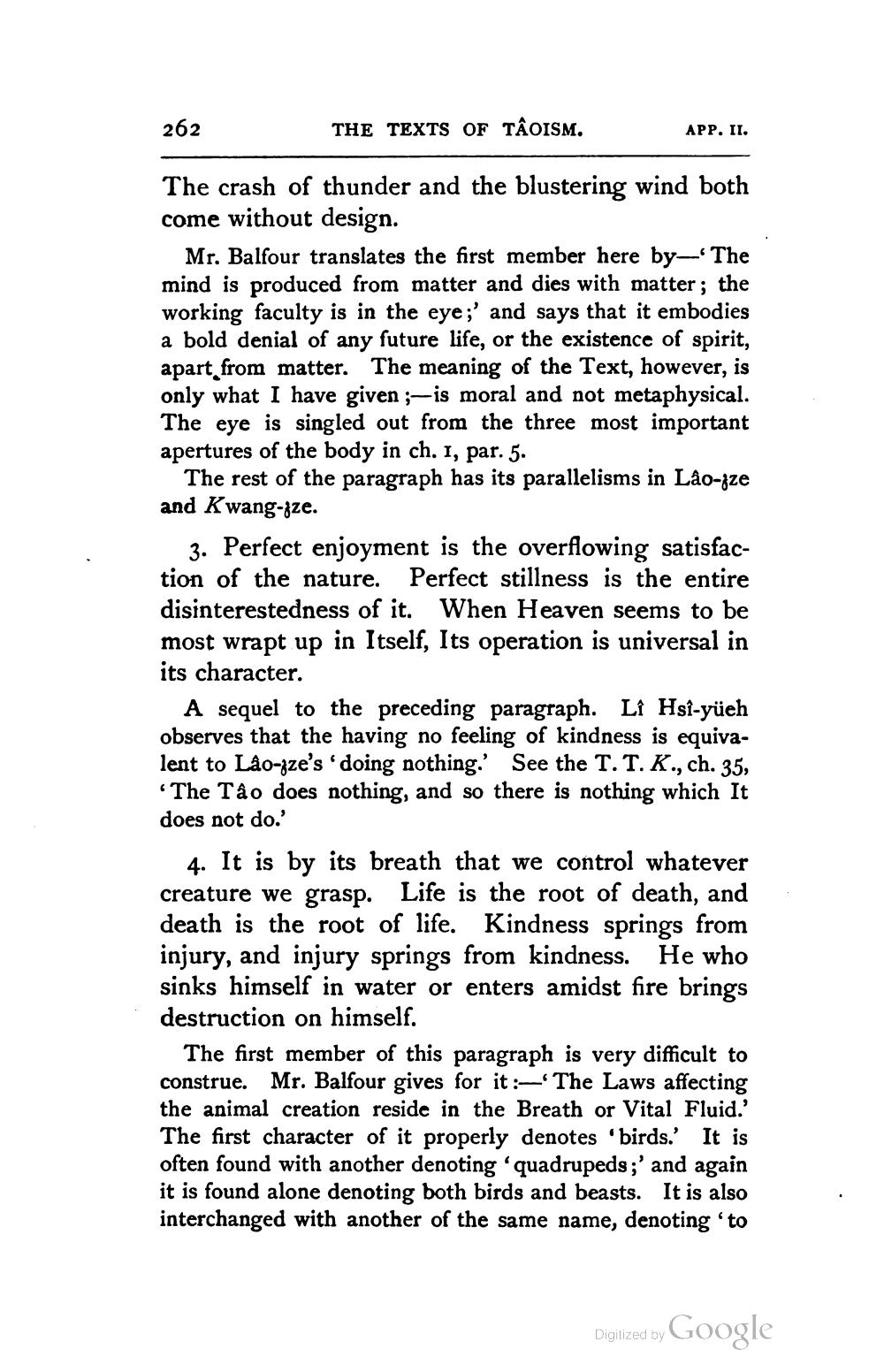________________
262
THE TEXTS OF TÂOISM.
APP. II.
The crash of thunder and the blustering wind both come without design.
Mr. Balfour translates the first member here by—The mind is produced from matter and dies with matter; the working faculty is in the eye;' and says that it embodies a bold denial of any future life, or the existence of spirit, apart from matter. The meaning of the Text, however, is only what I have given ;-is moral and not metaphysical. The eye is singled out from the three most important apertures of the body in ch. 1, par. 5.
The rest of the paragraph has its parallelisms in Lâo-zze and Kwang-gze.
3. Perfect enjoyment is the overflowing satisfaction of the nature. Perfect stillness is the entire disinterestedness of it. When Heaven seems to be most wrapt up in Itself, Its operation is universal in its character.
A sequel to the preceding paragraph. Lĩ Hsi-yüch observes that the having no feeling of kindness is equivalent to Lào-zze's doing nothing.' See the T.T. K., ch. 35, •The Tâo does nothing, and so there is nothing which It does not do.'
4. It is by its breath that we control whatever creature we grasp. Life is the root of death, and death is the root of life. Kindness springs from injury, and injury springs from kindness. He who sinks himself in water or enters amidst fire brings destruction on himself.
The first member of this paragraph is very difficult to construe. Mr. Balfour gives for it: The Laws affecting the animal creation reside in the Breath or Vital Fluid.' The first character of it properly denotes 'birds.' It is often found with another denoting 'quadrupeds;' and again it is found alone denoting both birds and beasts. It is also interchanged with another of the same name, denoting to
Digitized by Google




